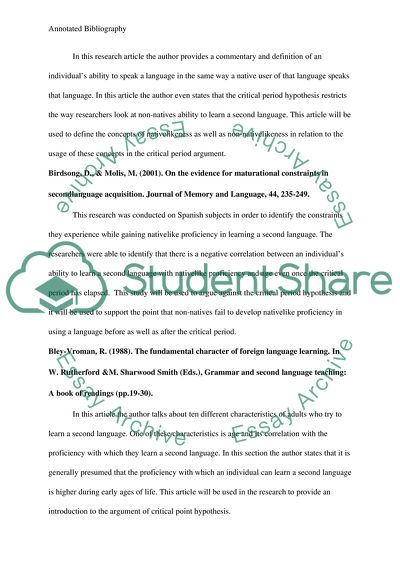Cite this document
(“Arguments about the critical period hypothesis Annotated Bibliography”, n.d.)
Arguments about the critical period hypothesis Annotated Bibliography. Retrieved from https://studentshare.org/humanitarian/1693766-arguments-about-the-critical-period-hypothesis
Arguments about the critical period hypothesis Annotated Bibliography. Retrieved from https://studentshare.org/humanitarian/1693766-arguments-about-the-critical-period-hypothesis
(Arguments about the Critical Period Hypothesis Annotated Bibliography)
Arguments about the Critical Period Hypothesis Annotated Bibliography. https://studentshare.org/humanitarian/1693766-arguments-about-the-critical-period-hypothesis.
Arguments about the Critical Period Hypothesis Annotated Bibliography. https://studentshare.org/humanitarian/1693766-arguments-about-the-critical-period-hypothesis.
“Arguments about the Critical Period Hypothesis Annotated Bibliography”, n.d. https://studentshare.org/humanitarian/1693766-arguments-about-the-critical-period-hypothesis.


